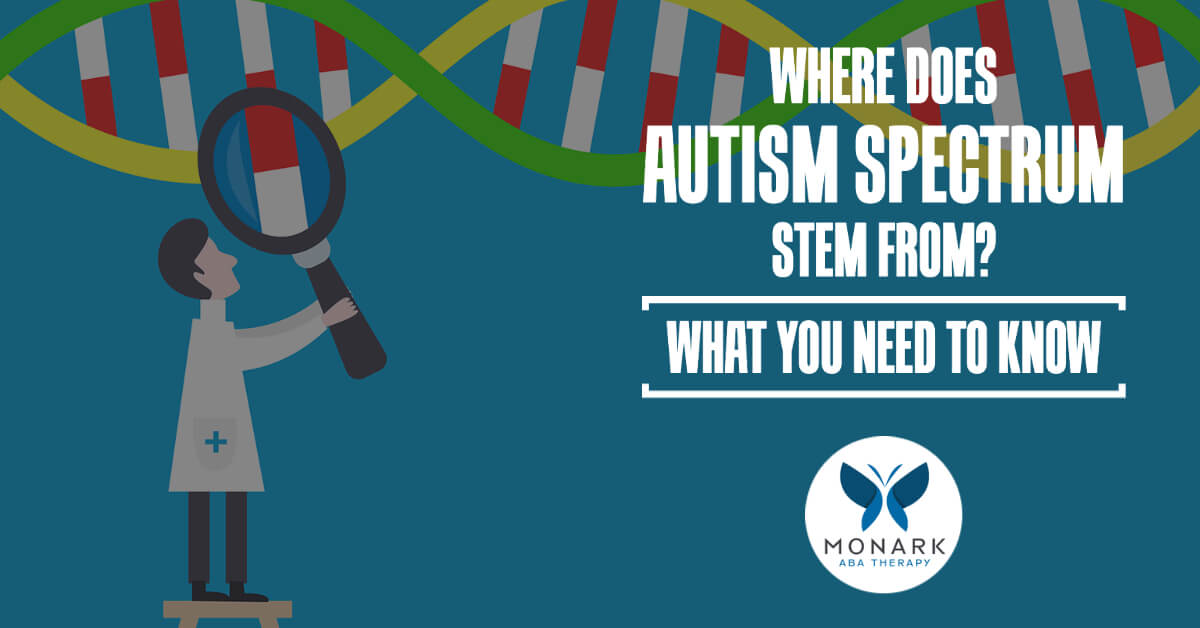
10 Apr Where Does Autism Stem From?
Autism spectrum disorder (ASD) is a developmental disorder that affects communication, social interaction, and behavior. Although the exact cause of autism is still not fully understood, research suggests that there are both genetic and environmental factors at play.
What causes Autism is a question so many parents and people ask themselves. The answer is that we still do not know. One of the primary causes of autism is believed to be genetic. Studies have found that individuals with a sibling or parent with autism are more likely to be diagnosed with ASD themselves. Leading research indicates that it is genetically passed down from the father, but does not mean that the father has Autism. However, it’s important to note that having a genetic predisposition to autism does not guarantee that someone will develop the disorder. We also know that only 20% of parents who have a child with Autism will have another child with Autism. The prevalence rate of Autism has been increasing for decades and is still increasing. Some say this is in part to a wider diagnostic criteria and better awareness of Autism itself.
Environmental factors may also play a role in the development of autism. For example, studies have found that maternal exposure to certain chemicals during pregnancy, such as pesticides and phthalates, may increase the risk of ASD in offspring. Additionally, prenatal and perinatal factors, such as low birth weight, maternal infection, and exposure to certain medications, have also been linked to an increased risk of autism.
Furthermore, recent research has suggested that abnormalities in brain development may contribute to the development of ASD. This could include differences in the structure or function of certain regions of the brain, as well as altered patterns of connectivity between different brain regions.
In conclusion, while the exact causes of autism are not yet fully understood, it is believed to stem from a combination of genetic and environmental factors. Further research in this field will continue to shed light on the underlying mechanisms behind this complex disorder and may eventually lead to improved treatments and interventions for individuals with ASD.
